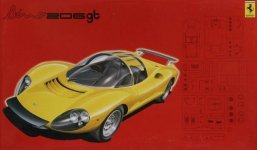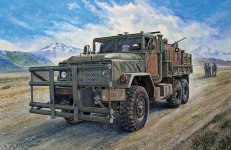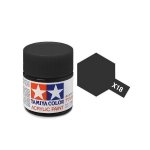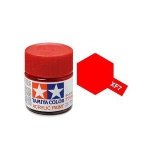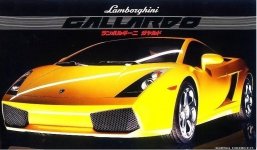-
Załączniki bezpieczeństwa
Załczniki do produktuZałączniki dotyczące bezpieczeństwa produktu zawierają informacje o opakowaniu produktu i mogą dostarczać kluczowych informacji dotyczących bezpieczeństwa konkretnego produktu
-
Informacje o producencie
Informacje o producencieInformacje dotyczące produktu obejmują adres i powiązane dane producenta produktu.
-
Osoba odpowiedzialna w UE
Osoba odpowiedzialna w UEPodmiot gospodarczy z siedzibą w UE zapewniający zgodność produktu z wymaganymi przepisami.
Italeri 3685 Lamborgini Diablo 1/24
Plastikowy model samochodu do sklejania. Nie zawiera Kleju ani farby.
Lamborghini Diablo – supersamochód produkowany przez włoską markę Lamborghini w latach 1991 - 2000. Diablo w 1990 był mianowany tytułem najszybszego samochodu świata – osiągnął 329 km/h[1]. Odebrał go swojemu największemu rywalowi Ferrari F40 i dzierżył go od 1990 do 1991. Ciekawostką jest to, że zdołał poprawić rekord tylko o 1 km/h. W 1991 supersportowy Bugatti EB110 odebrał mu ten tytuł, znacznie podnosząc poprzeczkę w kategorii prędkość maksymalna dla tego typu aut. Przez cały okres produkcji sprzedano 2903 egzemplarze.
Lamborghini Diablo (1990–1998) firma Lamborghini wprowadziła model Diablo w zastępstwie dla starzejącego się modelu Countach. Auto trafiło do sprzedaży 21 stycznia 1990. Jego cena wynosiła wtedy 240 000 dolarów. Czterdziestoośmiozaworowy silnik o pojemności 5,7 litra generował moc 492 koni mechanicznych (367 kW) oraz moment obrotowy wynoszący 580 Nm. Dzięki temu pojazd rozpędza się do 100 km/h w 4 sekundy, a jego prędkość maksymalna wynosi 325 km/h.
The Lamborghini Diablo is a high-performance mid-engine sports car that was built by Italian automotive manufacturer Lamborghini between 1990 and 2001. It is the first production Lamborghini capable of attaining a top speed in excess of 320 kilometres per hour (200 mph). After the end of its production run in 2001, the Diablo was replaced by the Lamborghini Murciélago. The name Diablo means "devil" in Spanish.At a time when the company was financed by the Swiss-based brothers Jean Claude and Patrick Mimran, Lamborghini began development of what was codenamed Project 132 in June 1985 as a replacement for the Countach, Lamborghini's then flagship sports car. The brief stated that the top speed of the new car had to be at least 315 km/h (196 mph).
The design of the car was contracted to Marcello Gandini, who had designed its two predecessors. When Chrysler Corporation bought the company in 1987, funding the company to complete the car's development, its management was uncomfortable with Gandini's designs and commissioned its design team in Detroit to execute a third extensive redesign, smoothing out the infamous sharp edges and corners of Gandini's original design, and leaving him famously unimpressed. In fact, Gandini was so disappointed with the "softened" shape that he would later realise his original design in the Cizeta-Moroder V16T.
The new car was named Diablo, carrying on Lamborghini's tradition of naming its cars after breeds of fighting bulls. The Diablo was named after a ferocious bull raised by the Duke of Veragua in the 19th century, famous for fighting an epic battle with 'El Chicorro' in Madrid on 11 July 1869.












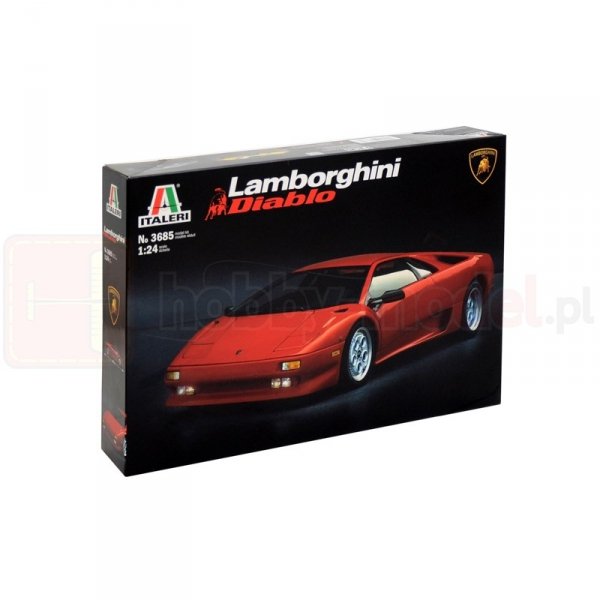

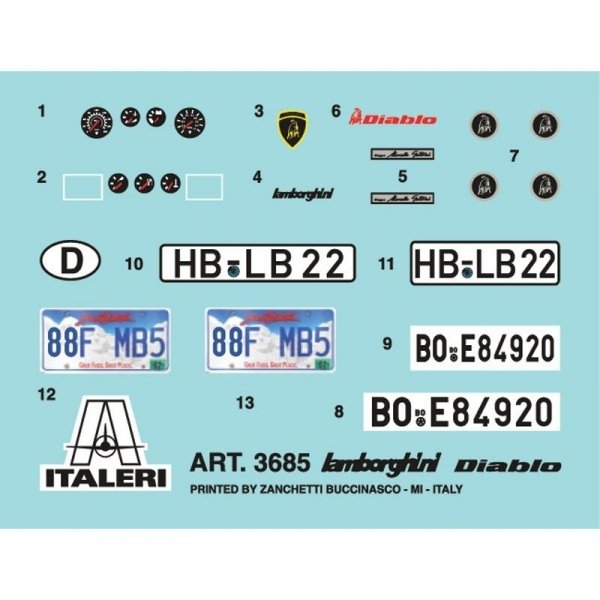

 1 szt.
1 szt.
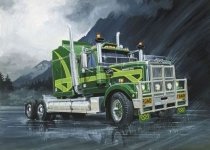
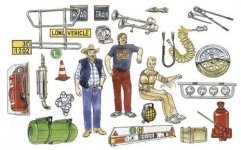

 22 szt.
22 szt.